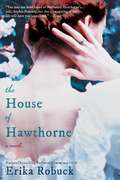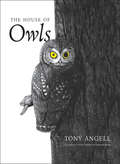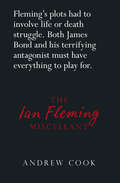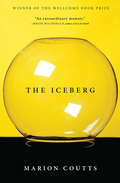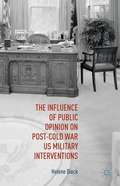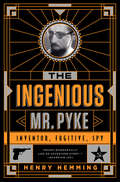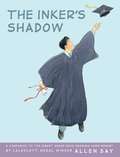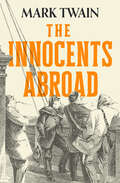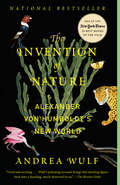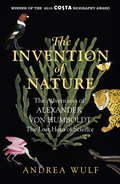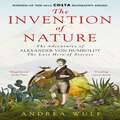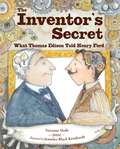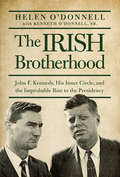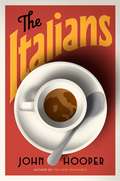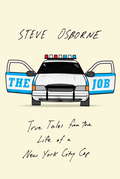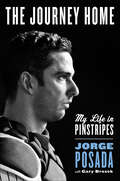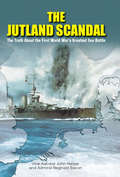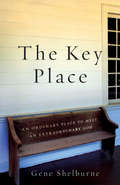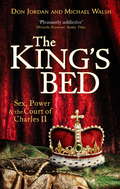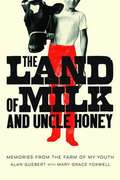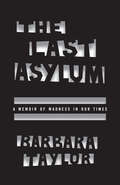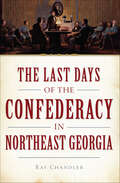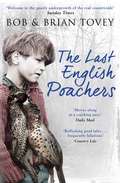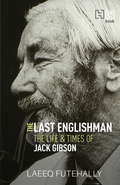- Table View
- List View
The House of Hawthorne
by Erika RobuckFrom Erika Robuck, bestselling author of Hemingway's Girl, comes a brilliant new novel about a literary couple. The unlikely marriage between Nathaniel Hawthorne, the celebrated novelist, and Sophia Peabody, the invalid artist, was a true union of passion and intellect.... Beset by crippling headaches from a young age and endowed with a talent for drawing, Sophia is discouraged by her well-known New England family from pursuing a woman's traditional roles. But from their first meeting, Nathaniel and Sophia begin an intense romantic relationship that despite many setbacks leads to their marriage. Together, they will cross continents, raise children, and experience all the beauty and tragedy of an exceptional partnership. Sophia's vivid journals and her masterful paintings kindle a fire in Nathaniel, inspiring his writing. But their children's needs and the death of loved ones steal Sophia's energy and time for her art, fueling in her a perennial tug-of-war between fulfilling her domestic duties and pursuing her own desires. Spanning the years from the 1830s to the Civil War, and moving from Massachusetts to England, Portugal, and Italy, The House of Hawthorne explores the tension within a famous marriage of two soulful, strong-willed people, each devoted to the other but also driven by a powerful need to explore the far reaches of their creative impulses. It is the story of a forgotten woman in history, who inspired one of the greatest writers of American literature...From the Hardcover edition.
The House of Owls
by Tony Angell&“A charming personal account, accompanied by nearly 100 illustrations, that underscores how owls and other birds enrich our lives.&”—Kirkus Reviews Winner of the National Outdoor Book Award For a quarter of a century, Tony Angell and his family shared the remarkable experience of closely observing pairs of western screech owls that occupied a nesting box outside the window of their forest home. The journals in which the author recorded his observations, and the captivating drawings he created, form the heart of this compelling book—a personal account of an artist-naturalist&’s life with owls. Angell&’s extensive illustrations show owls engaged in what owls do—hunting, courting, raising families, and exercising their inquisitive natures—and reveal his immeasurable respect for their secret lives and daunting challenges. Angell discusses the unique characteristics that distinguish owls from other bird species and provides a fascinating overview of the impact owls have had on human culture and thought. He also offers detailed scientific descriptions of the nineteen species of owls found in North America, as well as their close relatives elsewhere. Always emphasizing the interaction of humans and owls, the author affirms the power of these birds to both beguile and inspire. &“Endearing…provides a lot of fascinating information about these reclusive creatures.&”—The New York Times Book Review &“Angell writes (and draws) with the absolute authority of one who has studied, rehabilitated, lived with and loved the animals his whole life.&”—The Wall Street Journal &“Steeped in the tradition of Alexander Wilson and John James Audubon, it blends taxonomy, ornithology, biogeography and autobiography.&”—Times Literary Supplement
The Ian Fleming Miscellany
by Andrew CookThe name Ian Fleming is synonymous with British espionage, both with his work as a naval intelligence officer in the Second World War as well as with his creation of the most famous fictional spy in literary history: James Bond. This book centres on Ian Fleming the man, his contradictions and his public and private personality. It examines the person behind the myth and how in particular he managed (unsuccessfully at first) to create a film franchise that has lasted over fifty years. It considers Fleming’s reputation as a writer, the ‘formula method’ he perfected and that formula’s reliance on the recycling of real individuals and events, as well as the occasional reliance on plagiarism. It uniquely accesses a number of recently opened government files that shed light on previously unknown wartime operations, such as the Air Ministry’s top secret ‘Operation Grand Slam’, which was used in Goldfinger.
The Iceberg: A Memoir
by Marion CouttsWinner of the Wellcome PrizeA finalist for the Samuel Johnson Prize and the Costa Award"A memoir quite unlike any other. It has the strength of an arrow: taut, spiked, quavering, working to its fatal conclusion...an extraordinary story told in an extraordinary way.”-The Sunday Times"The most heartbreaking memoir of the year.”-Independent on SundayWinner of the Wellcome Book Prize, and finalist for every major nonfiction award in the UK, including the Samuel Johnson Prize and the Costa Award, The Iceberg is artist and writer Marion Coutts’ astonishing memoir; an "adventure of being and dying "and a compelling, poetic meditation on family, love, and language.In 2008, Tom Lubbock, the chief art critic for The Independent was diagnosed with a brain tumor. The Iceberg is his wife, Marion Coutts’, fierce, exquisite account of the two years leading up to his death. In spare, breathtaking prose, Coutts conveys the intolerable and, alongside their two year old son Ev-whose language is developing as Tom’s is disappearing-Marion and Tom lovingly weather the storm together. In short bursts of exquisitely textured prose, The Iceberg becomes a singular work of art and an uplifting and universal story of endurance in the face of loss.
The Influence of Public Opinion on Post–Cold War US Military Interventions
by Helene DieckIs the American president free to wage a war? What is his leeway with respect to public opinion? The book explores these and other essential questions in understanding post—Cold War and post-9/11 conflicts: interventions characterized by their long duration in distant countries with unclear strategic interests. If public opinion often initially tolerates the President embarking on a military intervention, that support is difficult to maintain in the long term when the troops are on the battlefield and victory appears improbable. In order to maintain public support as long as possible for foreign interventions, the United States often adapts military strategy and tactics to the detriment of the desired objectives. As a result, and contrary to the predominant literature, this qualitative study argues that public opinion has major impact on military interventions.
The Ingenious Mr. Pyke: Inventor, Fugitive, Spy
by Henry HemmingThis is the extraordinary story of Geoffrey Pyke, an inventor, war reporter, escaped prisoner, campaigner, father, educator--and all-around misunderstood genius. In his day, he was described as one of the world's great minds, to rank alongside Einstein, yet he remains virtually unknown today. Pyke was an unlikely hero of both world wars and, among many other things, is seen today as the father of the U. S. Special Forces. He changed the landscape of British pre-school education, earned a fortune on the stock market, wrote a bestseller and in 1942 convinced Winston Churchill to build an aircraft carrier out of reinforced ice. He escaped from a German WWI prison camp, devised an ingenious plan to help the Republicans in the Spanish Civil War, and launched a private attempt to avert the outbreak of the Second World War by sending into Nazi Germany a group of pollsters disguised as golfers. Despite his brilliance, Pyke ultimately could not find peace, committing suicide in 1948. Yet the full scope of his story remained secret even after his death: in 2009, MI5 released a mass of material suggesting that Pyke was in fact a senior official in the Soviet Comintern. In 1951 papers relating to Pyke were found in the flat of "Cambridge Spy' Guy Burgess after his defection to Moscow. MI5 had "watchers" follow Pyke through the bombed-out streets of London, his letters were opened and listening devices picked up clues to his real identity. Convinced he was a Soviet agent codenamed Professor P, MI5 helped to bring his career to an end. It is only now, more than sixty years after his death, that Geoffrey Pyke's astonishing story can be told in full. The Ingenious Mr. Pyke is a many-faceted account of this enigmatic man’s genius, and reveals him as one of the great innovators of the last century.
The Inker's Shadow (Scholastic Press Novels)
by Allen SayFor Allen Say, life as teen in Southern California was a cold existence. His father, one of the leading hamburger salesmen in Japan, ran a booming burger business, much like McDonald's
The Innocents Abroad: Or, The New Pilgrim's Progress...
by Mark TwainThe book that made Mark Twain famous and introduced theworld to that obnoxious and ubiquitous character: the American tourist Based on a series of letters first published in American newspapers, The Innocents Abroad is Mark Twain&’s hilarious and insightful account of an organized tour of Europe and the Holy Land undertaken in 1867. With his trademark blend of skepticism and sincerity, Twain casts New World eyes on the people and places of the Old World, including London, Paris, Rome, Odessa, Constantinople, Damascus, and Jerusalem. He skewers the idiosyncrasies and pretensions of Americans abroad and delights in tormenting the local tour guides. In Lake Como, he insists that Lake Tahoe is nicer. In Genoa, he and his fellow travelers claim they&’ve never heard of Christopher Columbus. First published in 1869, The Innocents Abroad made Mark Twain a national celebrity. For the rest of the author&’s life, it outsold all his other books, and remains one of the bestselling travelogues of all time. Part satire, part guidebook, it&’s a must-read for fans of this inimitable author and anyone who has experienced the pleasure and the pain of being a tourist. This ebook has been professionally proofread to ensure accuracy and readability on all devices.
The Invention of Nature: Alexander von Humboldt's New World
by Andrea WulfThe acclaimed author of Founding Gardeners reveals the forgotten life of Alexander von Humboldt, the visionary German naturalist whose ideas changed the way we see the natural world--and in the process created modern environmentalism.NATIONAL BEST SELLEROne of the New York Times 10 Best Books of the YearWinner of the Los Angeles Times Book Prize, The James Wright Award for Nature Writing, the Costa Biography Award, the Royal Geographic Society's Ness Award, the Sigurd F. Olson Nature Writing AwardFinalist for the Andrew Carnegie Medal for Excellence in Nonfiction, the Kirkus Prize Prize for Nonfiction, the Independent Bookshop Week Book AwardA Best Book of the Year: The New York Times, The Atlantic, The Economist, Nature, Jezebel, Kirkus Reviews, Publishers Weekly, New Scientist, The Independent, The Telegraph, The Sunday Times, The Evening Standard, The SpectatorAlexander von Humboldt (1769-1859) was an intrepid explorer and the most famous scientist of his age. In North America, his name still graces four counties, thirteen towns, a river, parks, bays, lakes, and mountains. His restless life was packed with adventure and discovery, whether he was climbing the highest volcanoes in the world or racing through anthrax-infected Siberia or translating his research into bestselling publications that changed science and thinking. Among Humboldt's most revolutionary ideas was a radical vision of nature, that it is a complex and interconnected global force that does not exist for the use of humankind alone. Now Andrea Wulf brings the man and his achievements back into focus: his daring expeditions and investigation of wild environments around the world and his discoveries of similarities between climate and vegetation zones on different continents. She also discusses his prediction of human-induced climate change, his remarkable ability to fashion poetic narrative out of scientific observation, and his relationships with iconic figures such as Simón Bolívar and Thomas Jefferson. Wulf examines how Humboldt's writings inspired other naturalists and poets such as Darwin, Wordsworth, and Goethe, and she makes the compelling case that it was Humboldt's influence that led John Muir to his ideas of natural preservation and that shaped Thoreau's Walden. With this brilliantly researched and compellingly written book, Andrea Wulf shows the myriad fundamental ways in which Humboldt created our understanding of the natural world, and she champions a renewed interest in this vital and lost player in environmental history and science.From the Hardcover edition.
The Invention of Nature: The Adventures of Alexander von Humboldt, the Lost Hero of Science: Costa & Royal Society Prize Winner
by Andrea WulfWINNER OF THE 2015 COSTA BIOGRAPHY AWARDWINNER OF THE ROYAL SOCIETY SCIENCE BOOK PRIZE 2016'A thrilling adventure story' Bill Bryson'Dazzling' Literary Review 'Brilliant' Sunday Express'Extraordinary and gripping' New Scientist'A superb biography' The Economist'An exhilarating armchair voyage' GILES MILTON, Mail on Sunday Alexander von Humboldt (1769-1859) is the great lost scientist - more things are named after him than anyone else. There are towns, rivers, mountain ranges, the ocean current that runs along the South American coast, there's a penguin, a giant squid - even the Mare Humboldtianum on the moon. His colourful adventures read like something out of a Boy's Own story: Humboldt explored deep into the rainforest, climbed the world's highest volcanoes and inspired princes and presidents, scientists and poets alike. Napoleon was jealous of him; Simon Bolívar's revolution was fuelled by his ideas; Darwin set sail on the Beagle because of Humboldt; and Jules Verne's Captain Nemo owned all his many books. He simply was, as one contemporary put it, 'the greatest man since the Deluge'.Taking us on a fantastic voyage in his footsteps - racing across anthrax-infected Russia or mapping tropical rivers alive with crocodiles - Andrea Wulf shows why his life and ideas remain so important today. Humboldt predicted human-induced climate change as early as 1800, and The Invention of Nature traces his ideas as they go on to revolutionize and shape science, conservation, nature writing, politics, art and the theory of evolution. He wanted to know and understand everything and his way of thinking was so far ahead of his time that it's only coming into its own now. Alexander von Humboldt really did invent the way we see nature.
The Invention of Nature: The Adventures of Alexander von Humboldt, the Lost Hero of Science: Costa & Royal Society Prize Winner
by Andrea WulfWINNER OF THE 2015 COSTA BIOGRAPHY AWARDWINNER OF THE ROYAL SOCIETY PRIZE 2016'Dazzling' Literary Review 'Brilliant' Sunday Express'Extraordinary and gripping' New Scientist'A superb biography' The Economist'An exhilarating armchair voyage' GILES MILTON, Mail on Sunday Alexander von Humboldt (1769-1859) is the great lost scientist - more things are named after him than anyone else. There are towns, rivers, mountain ranges, the ocean current that runs along the South American coast, there's a penguin, a giant squid - even the Mare Humboldtianum on the moon. His colourful adventures read like something out of a Boy's Own story: Humboldt explored deep into the rainforest, climbed the world's highest volcanoes and inspired princes and presidents, scientists and poets alike. Napoleon was jealous of him; Simon Bolívar's revolution was fuelled by his ideas; Darwin set sail on the Beagle because of Humboldt; and Jules Verne's Captain Nemo owned all his many books. He simply was, as one contemporary put it, 'the greatest man since the Deluge'.Taking us on a fantastic voyage in his footsteps - racing across anthrax-infected Russia or mapping tropical rivers alive with crocodiles - Andrea Wulf shows why his life and ideas remain so important today. Humboldt predicted human-induced climate change as early as 1800, and The Invention of Nature traces his ideas as they go on to revolutionize and shape science, conservation, nature writing, politics, art and the theory of evolution. He wanted to know and understand everything and his way of thinking was so far ahead of his time that it's only coming into its own now. Alexander von Humboldt really did invent the way we see nature.Recorded by arrangement with Doubleday, an imprint of the Knopf Doubleday Publishing Group, a division of Penguin Random House LLC; (P)2015 Highbridge, a division of Recorded Books
The Inventor's Secret: What Thomas Edison Told Henry Ford
by Suzanne SladeBoth Thomas Edison and Henry Ford started off as insatiably curious tinkerers. That curiosity led them to become inventors—with very different results. As Edison invented hit after commercial hit, gaining fame and fortune, Henry struggled to make a single invention (an affordable car) work. Witnessing Thomas's glorious career from afar, a frustrated Henry wondered about the secret to his success. This little-known story is a fresh, kid-friendly way to show how Thomas Edison and Henry Ford grew up to be the most famous inventors in the world—and best friends, too.
The Irish Brotherhood: John F. Kennedy, His Inner Circle and the Improbable Rise to the Presidency
by Helen O'DonnellThe Irish Brotherhood is the history of Jack Kennedy's original political inner circle. Led by Bobby Kennedy, Kenny O'Donnell, Larry O'Brien, and Dave Powers they were tough minded, Irish-Catholic guys who were joined together by a common ambition to see Jack Kennedy through to the White House. War veterans who were young, ambitious, and they wanted their country back. Jack Kennedy was their man, their leader. No matter that he was Irish, Catholic, and his "Old Man" had made as many enemies as friends - Jack had ambition, brains, a special charisma. To win the White House would be a victory not only for Jack Kennedy, but for the downtrodden. They collectively decided that if the political powers would not let them in willingly then they would kick the door down. At the center of the story is Kenny O'Donnell, Jack Kennedy's tough talking, no-bullshit, top political aide. Jack recognized he needed Kenny's blue collar, political genius and Kenny recognized something special in Jack.The Irish Brotherhood describes what it was like to be inside the Kennedy inner circle. With Bobby, who was determined to make his own mark apart from his famous family, his life-long struggle, never won, never lost. With Joe, as Kenny and Larry prove to him that their outsider approach was going to work after Jack's crushing victory in '58, which sets the stage for the Presidential campaign to come. This book is a missing piece of the story of the improbable rise to power of John F. Kennedy and further fills out the picture of the man revealing that Jack Kennedy was at heart a politician. He enjoyed the rough and tumble and despite his personal issues, or perhaps because of them, he became determined to succeed beyond anybody's expectations. It is intriguing an indelible portrait of the son, brother, friend, Congressman, Senator and President.
The Italians
by John HooperA vivid and surprising portrait of the Italian people from an admired foreign correspondentHow can a nation that spawned the Renaissance have produced the Mafia? How could people concerned with bella figura (keeping up appearances) have elected Silvio Berlusconi as their leader--not once, but three times? Sublime and maddening, fascinating yet baffling, Italy is a country of seemingly unsolvable riddles.John Hooper's entertaining and perceptive new book is the ideal companion for anyone seeking to understand contemporary Italy and the unique character of the Italians. Digging deep into their history, culture, and religion, Hooper offers keys to understanding everything from their bewildering politics to their love of life and beauty. Looking at the facts that lie behind the stereotypes, he sheds new light on many aspects of Italian life: football and Freemasonry, sex, symbolism, and the reason why Italian has twelve words for a coat hanger, yet none for a hangover.Even readers who think they know Italy well will be surprised, challenged, and delighted by The Italians.
The Job
by Steve Osborne"HOW YA DOIN'?" With these four syllables, delivered in an unmistakably authentic New York accent, Steve Osborne has riveted thousands of people at the legendary storytelling venue The Moth (and many tens of thousands more via YouTube) with his hilarious, profane, and touching tales from his twenty years as an NYPD street cop. Steve Osborne is the real deal, people: the tough, streetwise New York cop of your dreams, one with a big, big heart. Kojak? NYPD Blue? Law & Order? Fuggedaboudem! The Job blows them out of the water. Steve Osborne has seen a thing or two in his years in the NYPD--some harmless, some definitely not. In "Stakeout," Steve and his partner mistake a Manhattan dentist for an armed robbery suspect, and reduce the man to a puddle of snot and tears when questioning him. In "Mug Shot," the mother of a suspected criminal makes a strange request and provides a sobering reminder of the humanity at stake in his profession. And in "Home," the image of Steve's family provides the adrenaline he needs to fight for his life when assaulted by two armed and violent crackheads. From stories about his days as a rookie cop to the time spent patrolling in the Anti-Crime Unit--and his visceral, harrowing recollections of working during the weeks after 9/11--The Job: True Tales from the Life of a New York City Cop captures the humanity, the absurdity, and the dark humor of police work, as well as the bravery of those who do it. These stories will speak to those nostalgic for the New York City of the 1980s and '90s, a bygone era when the city was a crazier, more dangerous (and possibly more interesting) place.From the Hardcover edition.
The Journey Home: My Life in Pinstripes
by Gary Brozek Jorge PosadaThe legendary New York Yankee catcher tells the incredible story of his personal journey, offering an unexpected, behind-the-plate view of his career, his past, and the father-son bond that fueled his love of the game.For seventeen seasons, the name Jorge Posada was synonymous with New York Yankees baseball. A fixture behind home plate throughout the Yankees biggest successes, Jorge became the Yankees' star catcher almost immediately upon his arrival, and in the years that followed, his accomplishments, work ethic, and leadership established him as one of the greatest Yankees ever to put on the uniform.Now, in this long-awaited memoir, Jorge Posada details his journey to home plate, sharing a remarkable, generational account of his journey from the ball fields of Puerto Rico to the House that Ruth built. Offering a view from behind the mask unlike any other, Jorge discusses the key moments and plays that shaped teams and forged a legacy that came to define Yankee baseball for a generation. With pitch-by-pitch recall, Jorge looks back across the years, explaining how—as part of the Core Four alongside Derek Jeter, Andy Pettitte, and Mariano Rivera—he helped to reestablish the Yankees as a dynasty and win five World Series.Going beyond his all-star career, Jorge also shares his life in full for the first time, examining how his remarkable journey to the big leagues began in the most unexpected of ways. Digging into his cultural roots in Puerto Rico, the Dominican Republic, and Cuba, Jorge illuminates three generations of cherished father-son relationships that have made him the man he is today. At the center is the deep bond he shares with his father and namesake, Jorge Sr, who escaped Cuba and would eventually mold his son to be a ball player, honing his talent and instilling in him the drive necessary to fulfill his childhood dream of playing in the Bronx.Complete with sixteen pages of color photographs, this touching and earnest memoir is a testament to hard work and a celebration of the generational gift of baseball between fathers and sons.
The Jutland Scandal: The Truth About the First World War's Greatest Sea Battles
by John HarperThe Royal Navy had ruled the sea unchallenged for 100 years since Nelson triumphed at Trafalgar. Yet when the Grand Fleet faced the German High Seas Fleet across the grey waters of the North Sea near Jutland the British battleships and cruisers were battered into a draw, losing far more men and ships than the enemy. The Grand Fleet far outnumbered and outgunned the German fleet so something clearly had gone wrong. The public waited for the official histories of the battle to be released to learn the truth, but month after month went by with the Admiralty promising, but failing, to publish an account of Jutland. Questions were raised in Parliament (twenty-two times) yet still no official report was produced, due to objections from Admiral Beatty. This led to Admiral Bacon producing his own account of the battle, called The Jutland Scandal in 1925. Two years later the man instructed to write the official report, Rear-Admiral Harper, decided to publish his account independently, under the title The Truth About Jutland. Together, these two books lay bare the facts about Jutland and reveal the failings of senior officers and the distortions of the early historians. Produced as one volume for the first time, this book tells the truth about the scandal that developed following the largest battle ever fought at sea.
The Key Place: An Ordinary Place to Meet an Extraordinary God
by Gene ShelburneHave you found some nook on this planet where God seems to be especially present for you? A place where he whispers in your ear or tugs at your heart? If you have, then you will enjoy retreating with Gene Shelburne and eavesdropping on his reflections in such a place.When I bought the tiny house my mother grew up in, I thought I was preparing a retirement home for my aging parents. When a brain tumor robbed me of my mother, that dream died. Little did I know then how much the Lord would bless me as this isolated getaway became the perfect place for me to retreat from my hectic world. During quiet days beside our creek I could read and rest and ponder life, and I found that God whispered to me there in a way he seldom did at home. The truths that surfaced in that special place found their way onto the pages of this book.
The King's Bed: Sex, Power and the Court of Charles II
by Michael Walsh Don JordanTo refer to the private life of Charles II is to abuse the adjective. His personal life was anything but private. His amorous liaisons were largely conducted in royal palaces surrounded by friends, courtiers and literally hundreds of servants and soldiers. Gossip radiated throughout the kingdom. Charles spent most of his wealth and his intellect on gaining and keeping the company of women, from the lowest sections of society such as the actress Nell Gwyn to the aristocratic Louise de Kérouaille. Some of Charles' women played their part in the affairs of state, colouring the way the nation was run. Don Jordan and Michael Walsh take us inside Charles' palace, where we will meet court favourites, amusing confidants, advisors jockeying for political power, mistresses past and present as well as key figures in his inner circle such as his 'pimpmasters' and his personal pox doctor.The astonishing private life of Charles II reveals much about the man he was and why he lived and ruled as he did. The King's Bed tells the compelling story of a king ruled by his passion.
The King's Bed: Sex, Power and the Court of Charles II
by Michael Walsh Don JordanTo refer to the private life of Charles II is to abuse the adjective. His personal life was anything but private. His amorous liaisons were largely conducted in royal palaces surrounded by friends, courtiers and literally hundreds of servants and soldiers. Gossip radiated throughout the kingdom. Charles spent most of his wealth and his intellect on gaining and keeping the company of women, from the lowest sections of society such as the actress Nell Gwyn to the aristocratic Louise de Kérouaille. Some of Charles' women played their part in the affairs of state, colouring the way the nation was run. Don Jordan and Michael Walsh take us inside Charles' palace, where we will meet court favourites, amusing confidants, advisors jockeying for political power, mistresses past and present as well as key figures in his inner circle such as his 'pimpmasters' and his personal pox doctor.The astonishing private life of Charles II reveals much about the man he was and why he lived and ruled as he did. The King's Bed tells the compelling story of a king ruled by his passion.
The Land of Milk and Uncle Honey: Memories from the Farm of My Youth
by Alan Guebert Mary Grace Foxwell"The river was in God's hands, the cows in ours." So passed the days on Indian Farm, a dairy operation on 700 acres of rich Illinois bottomland. In this collection, Alan Guebert and his daughter-editor Mary Grace Foxwell recall Guebert's years on the land working as part of that all-consuming collaborative effort known as the family farm. Here are Guebert's tireless parents, measuring the year not in months but in seasons for sewing, haying, and doing the books; Jackie the farmhand, needing ninety minutes to do sixty minutes' work and cussing the entire time; Hoard the dairyman, sore fingers wrapped in electrician's tape, sharing wine and the prettiest Christmas tree ever; and the unflappable Uncle Honey, spreading mayhem via mistreated machinery, flipped wagons, and the careless union of diesel fuel and fire. Guebert's heartfelt and humorous reminiscences depict the hard labor and simple pleasures to be found in ennobling work, and show that in life, as in farming, Uncle Honey had it right with his succinct philosophy for overcoming adversity: "the secret's not to stop." https://www.youtube.com/watch?v=DooGQqUlXI4&index=1&list=FLPxtuez-lmHxi5zpooYEnBg
The Last Asylum: A Memoir of Madness in Our Times
by Barbara TaylorIn the late 1970s, Barbara Taylor, then an acclaimed young historian, began to suffer from severe anxiety. In the years that followed, Taylor’s world contracted around her illness. Eventually, her struggles were severe enough to lead to her admission to what had once been England’s largest psychiatric institution, the infamous Friern Mental Hospital in North London.The Last Asylum is Taylor’s breathtakingly blunt and brave account of those years. In it, Taylor draws not only on her experience as a historian, but also, more importantly, on her own lived history at Friern— once known as the Colney Hatch Lunatic Asylum and today the site of a luxury apartment complex. Taylor was admitted to Friern in July 1988, not long before England’s asylum system began to undergo dramatic change: in a development that was mirrored in America, the 1990s saw the old asylums shuttered, their patients left to plot courses through a perpetually overcrowded and underfunded system of community care. But Taylor contends that the emptying of the asylums also marked a bigger loss, a loss of community. She credits her own recovery to the help of a steadfast psychoanalyst and a loyal circle of friends— from Magda, Taylor’s manic-depressive roommate, to Fiona, who shares tips for navigating the system and stories of her boyfriend, the “Spaceman,” and his regular journeys to Saturn. The forging of that network of support and trust was crucial to Taylor’s recovery, offering a respite from the “stranded, homeless feelings” she and others found in the outside world. A vivid picture of mental health treatment at a moment of epochal change, The Last Asylum is also a moving meditation on Taylor’s own experience, as well as that of millions of others who struggle with mental illness.
The Last Days of the Confederacy in Northeast Georgia (Civil War Series)
by Ray ChandlerIn 1861, northeast Georgians were the driving force into secession and war. In 1865, Confederate president Jefferson Davis, his government collapsing and himself a wanted man, brought the reality of the war to the region's doorstep. Governor Joseph Brown, U.S. senator Robert Toombs and the politically influential Howell Cobb of Athens and his brother Thomas R.R. Cobb all fought passionately for Southern independence. The region epitomized the reasons for which the South waged and supported the war, yet it was spared the destruction seen in other places. Even Sherman's Union army touched only the region's fringes. Author Ray Chandler brings to light the final act of the Confederacy in the Peach State's northeast and the lasting impact it had on Georgians.
The Last English Poachers
by Bob ToveyJust two hours' drive west of London, a secret way of life that has been operating for centuries is clinging to a fragile existence. This is the world of the last English poachers - men who have lived off the land, taking game and wildlife from the big country estates, risking the wrath of gamekeepers in order to feed their families and make a modest livelihood. Poachers have lived cheek by jowl with landowners and the gentry throughout the history of the British class system. Their customs, hunting skills and knowledge of animals is comparable to that of indigenous communities in pre-industrial societies, yet the poacher has been vilified, ridiculed and, in olden times, even put to death for his activities. Hence, a war of attrition has been waged across the generations, played out in the woodlands of Britain, often undercover of night in clandestine operations comparable to military manoeuvres. Bob and BrianTovey are poachers of the old stripe: a father and son of 75 and 50 years old respectively, who are continuing their ancestors' traditions, reluctant to surrender the old ways of sourcing food from nature. Writer John McDonald has obtained unique access to the men's lives and histories, and tells their fascinating story in their own words. The book is filled with anecdotes both moving and hilarious, as their sense of self-preservation, mistrust of outsiders and suspicions of modern technology express themselves in daily life. It is set against the backdrop of country sports as they used to be - and will colourfully explain the shoots, the once-legal coursing meets, the centuries' old techniques of lamping, ferreting and netting and, of course, how the poachers outwit the keepers and police and escape with their quarry. It is a genuine, colourful and offbeat chronicle that documents rural life from a whole new perspective and a sense of humour.
The Last Englishman: The Life And Times Of Jack Gibson
by Laeeq Futehally`To educate means...to lead out, not to drive in. The first problem for a teacher is...to awake interest in those he is teaching and to make them keen to find out and understand for themselves, rather than rely on textbooks? The ability to do this, indeed, is the test of a really educated man, especially in [India], where objectivity is little valued, and a large assemblage of facts is much admired.? Widely acknowledged as the pioneer of the public school system in India, Jack Gibson?s name is synonymous with opening the doors of `privileged education? for one and all. As headmaster of Mayo College, Ajmer, he singlehandedly transformed the school into the `Eton of India?, laying the foundation for the formidable reputation it enjoys as well as for the methods in which education is imparted in public schools today. Having moved to India from England in 1936 to join the newly founded Doon School as a housemaster, Gibson adopted the country and its people as his own. His keen mind and larger-than-life nature made him a popular leader, one who was closely involved in his students? lives, fulfilling the roles of teacher, mentor, parent and disciplinarian all at once. Beloved by his students for his unconventional teaching methods (frequently involving picnics and treks to the nearby hills), his innate sense of fairness and his accessibility, he remained at Doon until 1953 ? during which time he also served as the first principal of the Joint Services Wing, now the prestigious National Defence Academy ? before joining Mayo College. For his outstanding contribution to education, he was awarded the Padma Shri in 1965. Educator, visionary, coach, mountaineer, friend and, above all, an inspiration, Gibson left an indelible mark on the institutions and the people he encountered in his life. Drawing on the many memories uncovered in his writings, The Last Englishman recounts the story of an extraordinary man through stories and anecdotes from those closest to him ? his boys.
